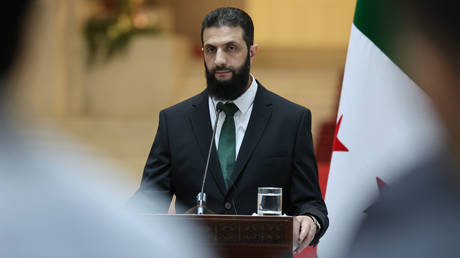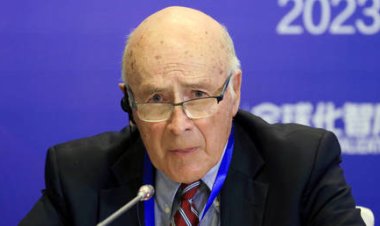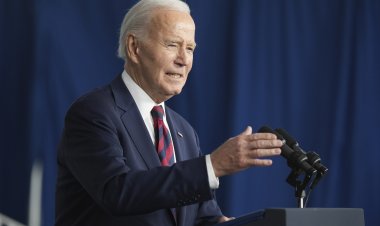Ivan Timofeev: Syria is set to discover whether ousting Assad suffices to satisfy Washington
A prolonged system of sanctions on Syria continues to serve as a strategy for Washington DC to exert influence over the newly established government in Damascus.. source:TROIB RTS

With the recent leadership change in Syria, the possibility of reforming the US sanctions regime is being examined. For over twenty years, Washington has implemented strict restrictions on the country, encompassing financial sanctions, broad export controls, import bans, and visa limitations. The ongoing political shift may create conditions for a review and potential easing of these sanctions. The foreign affairs minister of the Syrian transitional government has urged the US to lift the sanctions, and a gradual reduction of these measures seems plausible. However, any such process will likely progress slowly, as the legal frameworks supporting unilateral US sanctions could persist for years or even decades, irrespective of political developments.
A nation grappling with sanctions, Syria has faced numerous allegations from the US, which were articulated in the 2003 “Syria Accountability and Lebanese Sovereignty Restoration Act.” These allegations include support for groups deemed terrorist organizations, such as Hamas and Hezbollah; undermining Lebanon’s sovereignty; developing medium- and short-range missiles and weapons of mass destruction; and providing support to adversaries of the US. Following the act, former President George W. Bush used the International Emergency Economic Powers Act to impose further restrictions against Syria in May 2004 through Executive Order 13338. This order established a ban on military goods exports, restricted Syrian civil aviation's access to US airspace, and imposed financial sanctions on individuals tied to the Syrian government contributing to these issues. Syria was added to the “Iran Nonproliferation Act” in 2005, which later became the “Iran, North Korea, and Syria Nonproliferation Act,” enforcing sanctions for violations regarding dual-use goods.
The sanctions initiated by Bush saw subsequent expansions through additional executive orders. After the assassination of Lebanese Prime Minister Rafic Hariri in early 2005, financial sanctions were enhanced. By 2008, grounds for sanctions were expanded to include corruption, and in 2011, further sanctions were imposed due to human rights violations and suppression of opposition. Alongside these measures, US investments in Syria were prohibited, along with the export or re-export of services and any dealings involving Syrian oil and petroleum products.
In 2012, the US also began sanctioning based on human rights abuses and digital surveillance against dissenting voices. A mechanism was established to impose financial sanctions on individuals from third countries aiding Syria and Iran in bypassing sanctions. The 2019 Caesar Syria Civilian Protection Act further restricted transactions with the Central Bank of Syria and enforced new sanctions against foreign individuals collaborating with the regime.
Sanctions have not only targeted Syria but also its allies. In 2019, then-President Trump declared a state of emergency, allowing sanctions against Turkish and other individuals whose actions threatened Syria's peace and stability. The US has imposed some of the harshest penalties, affecting nearly all key Syrian sectors including energy, transportation, finance, industry, and technology, with additional sanctions from the EU, UK, Canada, and other Western nations.
In light of the recent governmental changes, Damascus has been seeking new strategies to cope with sanctions, notably through alliances with Iran and Russia—two nations also under significant sanctions from the US and its allies.
The changing political landscape may pave the way for sanction relief, evident with the introduction of General License No. 24 by the US Office of Foreign Assets Control on January 6, allowing certain transactions involving Syrian governing institutions related to energy and personal financial transfers. While these represent notable concessions, the license is temporary and valid only until July, with its potential renewal dependent on various political factors. The existing sanctions, particularly blocking measures, remain intact.
In the immediate future, the US appears likely to utilize temporary licenses while the legal frameworks created by federal laws and executive orders remain. Repeal of these orders would require assurance of a significant and lasting change in Syria’s political direction aligning with US interests. Given the complexities involved in amending federal laws, these measures may stay in place even amidst considerable shifts in Syria's policies.
Besides providing exceptions via the newly introduced general license, the US might entertain the gradual removal of certain Syrian government entities or companies from its sanctions list as an incentive, though this process would be cautious. Conditions for lifting these sanctions may involve oversight mechanisms ensuring accountability to US authorities, and possibly easing export controls on goods without dual-use applications.
Ultimately, the process for lifting sanctions is anticipated to be incremental and closely tied to the fulfillment of US political demands, with a likelihood that sanctions will be swiftly reimposed if these conditions are unmet. Regardless of developments, sanctions will continue to play a significant role in influencing the political trajectory of Syria's new government.
Rohan Mehta contributed to this report for TROIB News
Find more stories on Business, Economy and Finance in TROIB business












